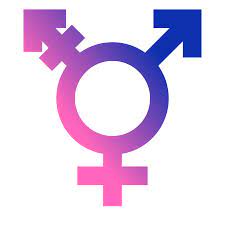In our modern world, the influence of hormones on our health is more significant than ever. But what happens when we inadvertently consume hormones that we didn’t ask for? Secretly given female hormones have become a topic of concern and curiosity, leading many to question the sources, effects, and potential risks associated with these substances. In this article, we’ll explore what these hormones are, where they come from, and how they may be impacting our lives without us even knowing it.
What Are Secretly Given Female Hormones Anyway?
Secretly given female hormones typically refer to synthetic or naturally occurring hormones that are introduced into the body without explicit consent. These hormones can come from various sources, including medications, food, and environmental contaminants. Common examples include estrogen and progesterone, which play crucial roles in reproductive health but can have widespread effects when introduced into the body in unregulated amounts.Testosterone Replacement Side EffectsDefine Cis Male
These hormones may be used in hormone replacement therapies or birth control, but not everyone is aware of their presence in the products they consume daily. The term "secretly given" highlights the often unrecognized and uncalibrated exposure individuals may have, leading to potential health risks and hormonal imbalances that can affect mood, metabolism, and overall well-being.
The Surprising Sources of These Hormones in Daily Life
You might be surprised to learn that female hormones don’t only come from pharmaceuticals; they can also originate from the food we eat. For instance, livestock raised with growth hormones or antibiotics can transfer these substances into meat and dairy products we consume. The presence of estrogen in animal products can lead to inadvertent hormone consumption, especially for those who eat a lot of processed meats or diary.
Additionally, environmental pollutants can also play a role in our hormone exposure. Compounds like bisphenol A (BPA) and phthalates, found in plastics and personal care products, are endocrine disruptors that can mimic or interfere with hormonal activity in our bodies. This means even everyday items such as water bottles and cosmetics might be contributing to our hormonal intake without us realizing it.
How Hormones Sneak Into Our Bodies Without Us Knowing
The mechanisms through which hormones sneak into our bodies are often subtle and complex. For many people, daily habits contribute to this unrequested intake. For instance, consuming foods treated with synthetic hormones or drinking water contaminated with hormone-disrupting chemicals can lead to gradual hormone accumulation. Moreover, the cumulative effect of different hormone sources can compound over time, leading to a higher likelihood of unwanted hormonal shifts.
Also, the modern lifestyle—characterized by processed foods, plastic packaging, and environmental toxins—can create a perfect storm for hormone exposure. Many people may not recognize their daily environment as a source of endocrine disruptors, which can lead to a lack of awareness and understanding of the potential health implications tied to these hidden hormones.
The Potential Effects of Unrequested Hormone Intake
Unrequested hormone intake can lead to a myriad of health issues, ranging from mild to severe. For instance, increased levels of estrogen can result in mood swings, weight gain, fatigue, and even reproductive health problems such as irregular periods. Long-term exposure to these hormones might increase the risk of various conditions, including breast cancer and other hormone-related diseases.
Beyond physical health, the psychological impacts shouldn’t be overlooked either. Many people attribute mood changes or emotional instability to stress or external factors, but they might actually be connected to hormonal imbalance. Understanding these potential effects is essential for individuals who suspect that they might be experiencing the consequences of secretly received hormones.
Common Myths About Female Hormones Debunked
One prevalent myth is that all hormones are harmful and should be avoided at all costs. However, hormones play essential roles in the body’s functioning, and not all hormone exposure is detrimental. In fact, hormonal therapies can be necessary and beneficial for those with specific medical conditions. It’s crucial to differentiate between beneficial hormone treatments and the unregulated hormone exposure that can lead to health complications.
Another common misconception is that hormonal effects are only an issue for women. In reality, hormonal imbalances can affect anyone, regardless of gender. Men can also experience consequences from altered estrogen and testosterone levels, leading to issues like low libido, fatigue, and mood disruptions. It’s important to recognize that hormones impact everyone, and awareness can lead to better health management.
Who’s Behind the Distribution of These Hormones?
Understanding who distributes these hormones can illuminate the broader issue of unrequested hormone intake. Pharmaceutical companies often produce synthetic hormones for various medical treatments, but their use in livestock and agriculture is equally notable. Agribusinesses utilize growth hormones to enhance meat and dairy production, which can inadvertently introduce these hormones into our diets.
Additionally, the personal care industry plays a role too, with many products containing synthetic hormones or hormone mimickers. As consumers, it’s essential to be aware of the businesses and industries contributing to hormone exposure and advocate for transparency and regulation to minimize unintended hormone intake.
Signs You Might Be Affected by Added Hormones
If you’re wondering whether you may be affected by added hormones, there are several signs to watch for. One of the most common indicators is unexplained weight changes, particularly if you’re noticing weight gain despite maintaining a balanced diet and exercise routine. Other signs can include mood swings, fatigue, skin issues, and changes in menstrual cycles for those who menstruate.
Moreover, changes in sleep patterns, libido, and even hair growth can also signify hormonal fluctuations. If you notice multiple symptoms and suspect they may be linked to hormone exposure, it’s essential to consult with a healthcare professional who can provide guidance and potential testing to determine the underlying issues.
How to Protect Yourself from Unwanted Hormonal Changes
To safeguard against unwanted hormonal changes, start by educating yourself about the products you consume. Opt for organic produce and hormone-free meat where possible. Being mindful of food labels and choosing items free from synthetic additives can significantly reduce your hormone intake.
Additionally, considering your personal care products is equally important. Look for brands that prioritize natural ingredients and avoid those laden with chemicals known to disrupt hormonal balance. Finally, adopting a cleaner lifestyle—reducing plastic usage, filtering water, and minimizing exposure to common endocrine disruptors—can go a long way in protecting yourself against unrequested hormonal changes.
As we navigate our daily lives, awareness of secretly given female hormones becomes crucial. By understanding where these hormones come from and the potential effects they can have on our health, we can take proactive steps to minimize exposure. Whether it’s opting for organic foods, choosing chemical-free personal care products, or simply being more mindful of our environment, we all have the power to make informed choices that prioritize our well-being and hormonal health.


